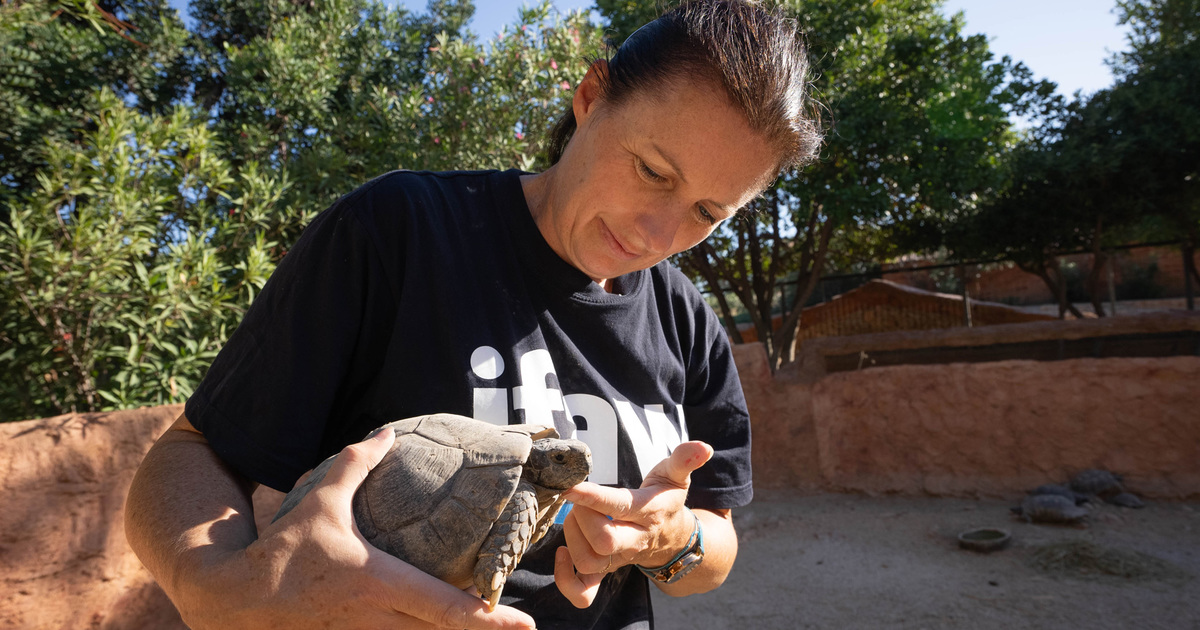
1. Five lions rescued from Ukraine
A lion, a lioness, and her three cubs were surrendered from a breeding facility to Wild Animal Rescue, no longer able to be cared for due to the impacts of the ongoing war. IFAW helped Wild Animal Rescue organise their transportation to Poznań Zoo in Poland, as part of a larger evacuation effort of big cats, including tigers and leopards. The lions made a 20-hour journey, and although the cubs have experienced significant trauma, they are fortunate enough to still be with their mother. The priority of Poznań Zoo is to care for these animals until they can find suitable forever homes.
2. Beehives prevent human-elephant conflict
Did you know the largest land animals are scared of bees? Because elephants avoid bees, building a beehive fence can prevent elephants from roaming into human communities. We built one in Malawi, where the elephant population of Kasungu National Park has increased from 40 individuals in 2014 to nearly 400 following our conservation efforts—a victory in itself—but where human-elephant conflict can threaten the livelihoods of farmers. The construction of the fence has provided employment opportunities to 150 members of the community and creates room for coexistence.
3. Restoring an Australia sanctuary ravaged by bushfires
This spring, IFAW worked with Habitat Innovation and Management to restore Two Thumbs Wildlife Trust Sanctuary, which was damaged by the Black Summer bushfires. On the property, the teams installed 100 innovative Habitech nest boxes, which are designed to mimic natural tree hollows. Each nest box can house two different species in two separate chambers, providing homes for birds, bats, sugar gliders, and other small animals. Within two months of installation, 75% of the boxes were occupied. In addition to installing the boxes, the teams also carved 20 tree hollows, planted 2,000 native grasses and trees, dispersed seeds to enhance biodiversity, and performed important soil erosion control and fencing work to help this landscape recover.
4. Researching North Atlantic right whales on Song of the Whale
Threatened by vessel strikes and entanglement, the North Atlantic right whale is critically endangered—approximately 350 individual whales remain. The IFAW-commissioned research vessel Song of the Whale aimed to monitor the movements and track the behaviours of right whales so we are better equipped to protect them. This year, Song of the Whale was on the water for 150 days, sailing along the US East Coast from St. Augustine, Florida to Georges Bank off Canada. Using underwater microphones and thermal cameras, our team detected the presence of whales, taking photos to identify unique individuals and critical mother-calf pairs. This monitoring informs conservation actions necessary to protect this species from extinction. Multiple advocacy events were held during the journey resulting in over 1,000 visitors onto the vessel and substantial media attention, helping to spread awareness of the plight of the North Atlantic right whale.
